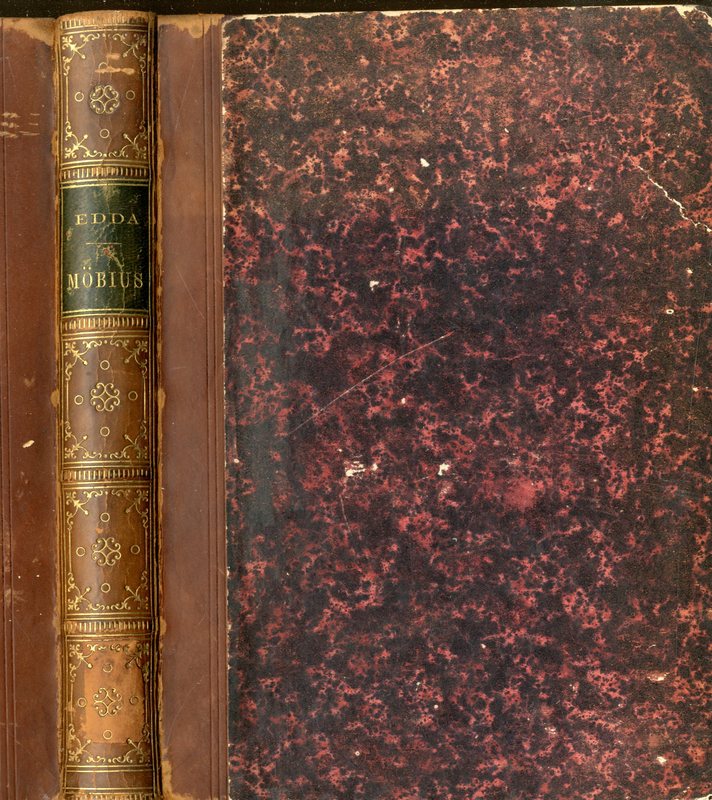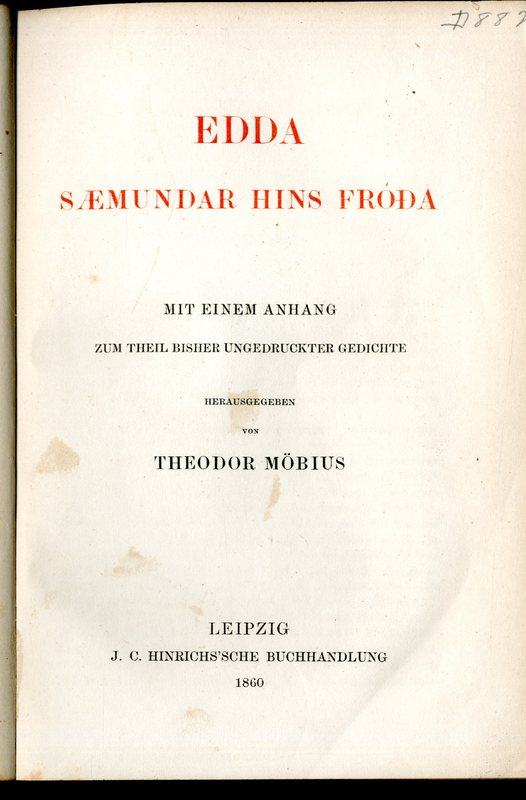The Poetic Edda, also known as Sæmundar Edda or the Elder Edda, is a collection of Old Norse poems from the Icelandic medieval manuscript Codex Regius ("Royal Book"). Along with the Prose Edda, the Poetic Edda is the most expansive source on Norse mythology. The first part of the Codex Regius preserves poems that narrate the creation and foretold destruction and rebirth of the Old Norse mythological world as well as individual myths about gods concerning Norse deities. The poems in the second part narrate legends about Norse heroes and heroines, such as Sigurd, Brynhildr and Gunnar.
The Codex Regius was written down in the 13th century but nothing was known of its whereabouts until 1643 when it came into the possession of Brynjólfur Sveinsson, then the Church of Iceland's Bishop of Skálholt. At that time, versions of the Prose Edda were well known in Iceland, but scholars speculated that there once was another Edda—an Elder Edda—which contained the pagan poems Snorri quotes in his book. When the Codex Regius was discovered, it seemed that this speculation had proven correct. Brynjólfur attributed the manuscript to Sæmundr the Learned, a larger-than-life 12th century Icelandic priest. While this attribution is rejected by modern scholars, the name Sæmundar Edda is still sometimes encountered.
http://en.wikipedia.org/wiki/Edda
http://en.wikipedia.org/wiki/Poetic_Edda
Theodor Möbius (1821 - 1890) was a German philologist who specialized in old Norse works.
http://en.wikipedia.org/wiki/Theodor_M%C3%B6bius
Mit einem Anhang zum Theil bisher ungedruckter Gedichte

